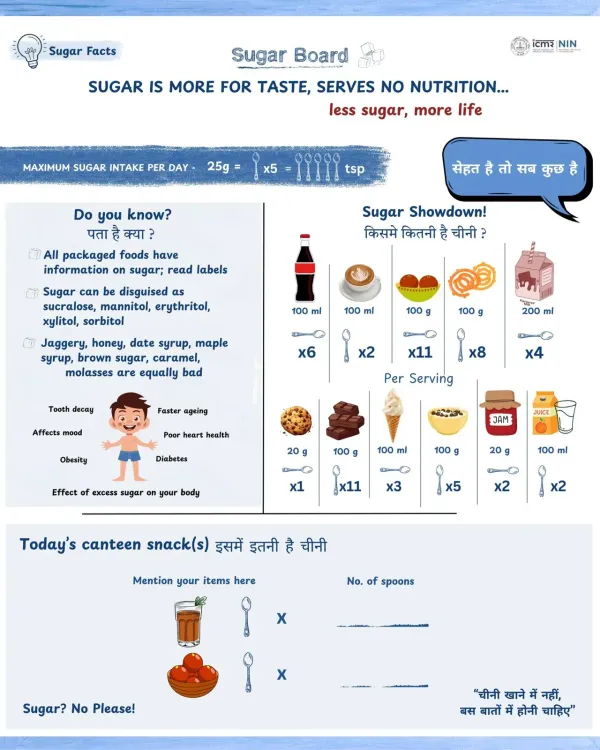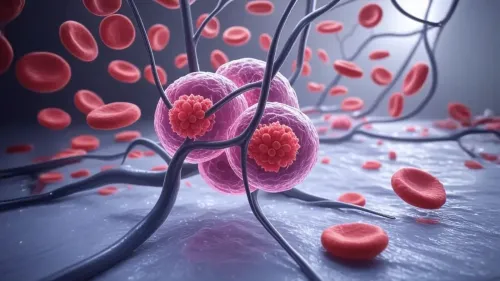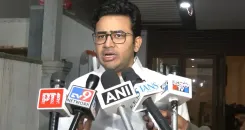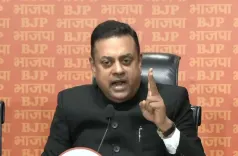Are Sugar & Oil Boards in Government Offices and Schools an Excellent Step for a Healthier India?

Synopsis
Key Takeaways
- Implementation of sugar and oil boards in schools and government offices to promote public health.
- Awareness of hidden sugars and fats in common food items.
- Support from health experts and organizations like WHO and FSSAI.
- Focus on preventing non-communicable diseases through better dietary choices.
- Encouragement of early nutritional education for children.
New Delhi, July 12 (NationPress) A recent initiative from the Ministry of Health to implement sugar and oil boards in both government offices and schools has been hailed as a remarkable stride towards fostering healthier environments and promoting a healthier India, experts stated on Saturday.
In a post on the social media platform X, the ICMR - National Institute of Nutrition revealed that the Ministry has encouraged all government institutions to prominently showcase Sugar Boards as part of its campaign for healthier workplaces.
These boards feature informative posters and digital displays that emphasize the adverse effects of sugar and oil found in commonly consumed foods, including items like samosas, kachoris, pizzas, pakoras, banana chips, burgers, soft drinks, and chocolate pastries.
They also provide insights into the impact of these foods on health and recommend the appropriate levels of fat and sugar intake.
“This is an excellent initiative to raise awareness about the hidden fats and sugars in our diets. Clear labeling on ultra-processed foods, alongside diversifying diets through the Public Distribution System (PDS) and school meals, will further bolster this initiative for a healthier India,” stated Dr. Soumya Swaminathan, former Chief Scientist at the World Health Organization (WHO).
The FSSAI noted that this initiative is aligned with Prime Minister Narendra Modi's vision for a healthier nation!
It added that this “innovative behavioral change strategy” is designed to counteract the prevalent promotion of high-sugar and high-oil foods.
“These boards are crucial for enabling informed choices and curbing obesity,” stated the FSSAI on X, emphasizing its support for the Eat Right India (ERI) movement.
The World Health Organization (WHO) recommends limiting added sugar intake throughout life. It advises both adults and children to keep free sugar consumption below 10 percent of total energy intake.
Furthermore, the UN health agency suggests an even stricter limit of under 5 percent of total energy intake.
In May, the Central Board of Secondary Education (CBSE) directed schools to implement “sugar boards.” Health experts believe this public health measure aligns with global nutrition objectives and will assist India in combating non-communicable diseases (NCDs) such as diabetes, hypertension, heart conditions, strokes, and specific cancers.
Rajeev Jayadevan, Convener of the Research Cell at Kerala State IMA, mentioned to IANS that the overconsumption of sugar and oil, coupled with insufficient physical activity, significantly contributes to obesity and NCDs.
“Fostering early nutritional awareness is essential. Providing clear labeling and dietary education in schools empowers children to make healthier food choices before chronic conditions arise,” Jayadevan advised.
“Sugar can be hidden in beverages, fruit juices, and processed snacks, while oil, being calorie-dense, is prevalent in fried foods, fast food, and even home cooking. Encouraging moderation in their consumption is vital for preventing NCDs among the population,” he concluded.










